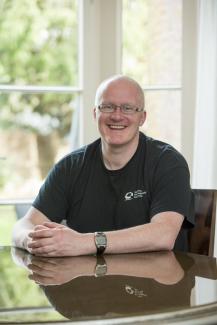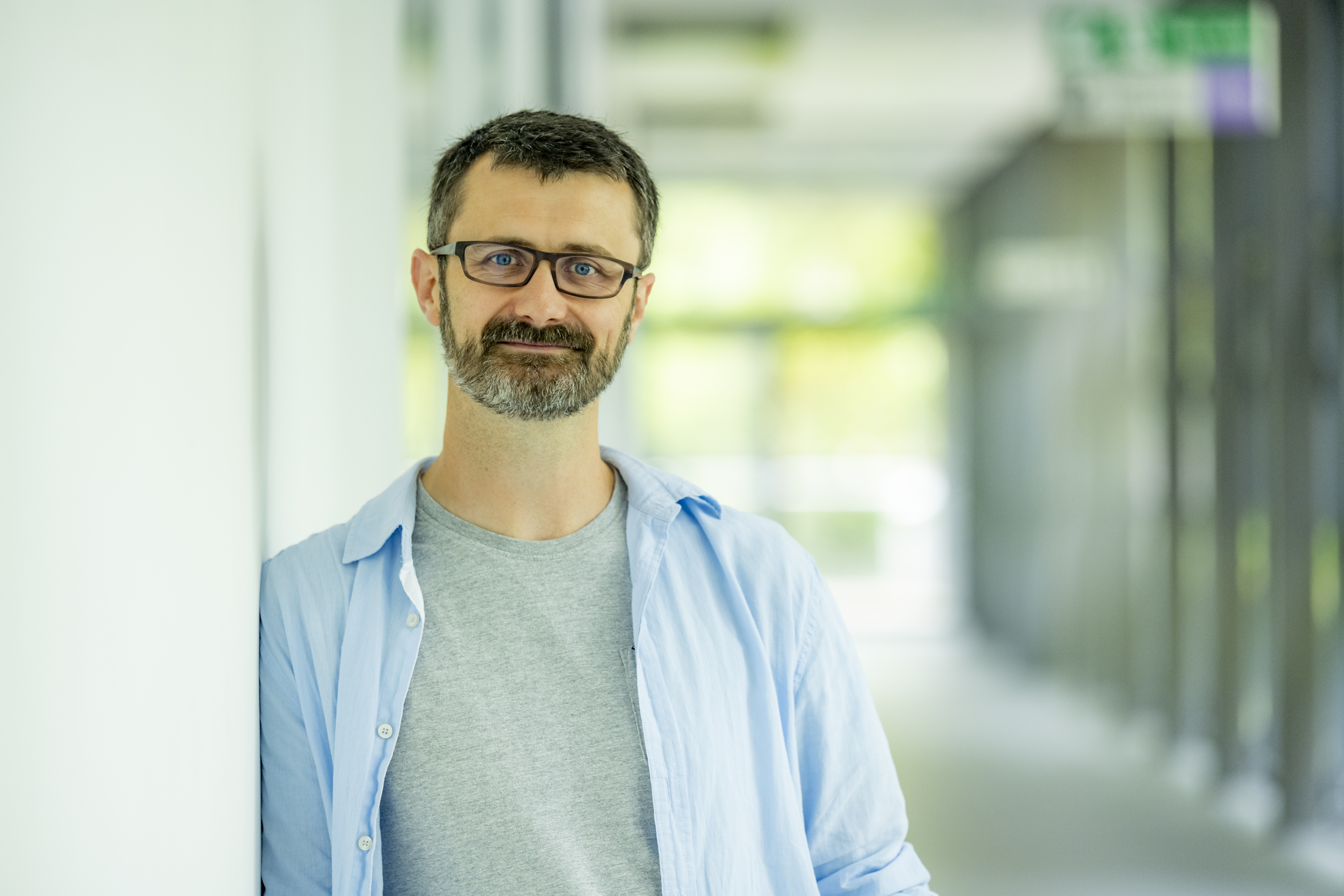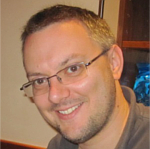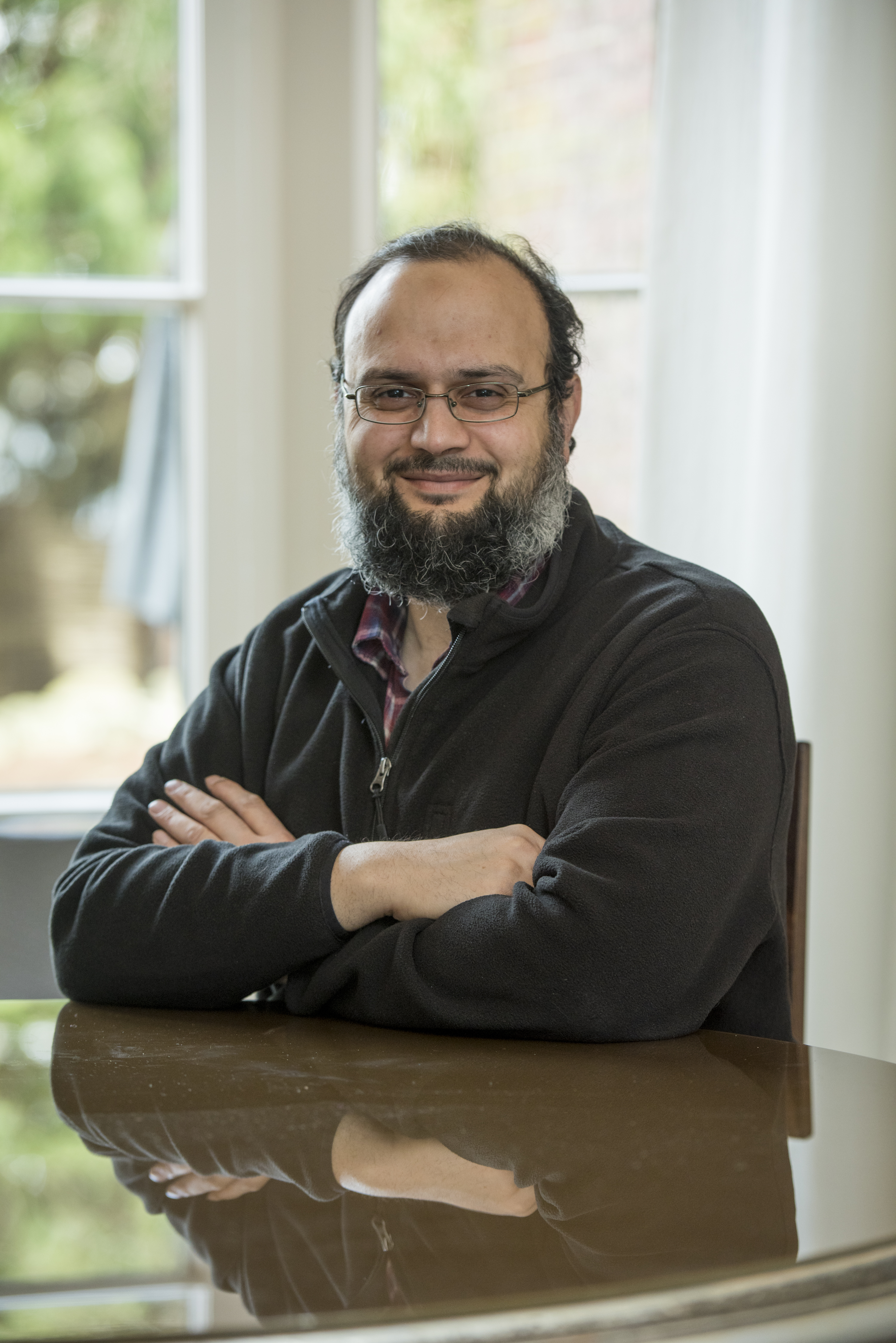Conference proceedings, journals and other articles on the work of the Institute or projects we have collaborated with.
Papers with the Institute as an author or co-author
2021
Cohen, J., Katz, D. S., Barker, M., Chue Hong, N., Haines, R. & Jay, C. (1 Jan 2021), The Four Pillars of Research Software Engineering. IEEE Software, 38, 1, p. 97-105. https://doi.org/10.1109/MS.2020.2973362
2020
Chue Hong, N. P., Cozzini, S., Genova, F., Hoffman-Sommer, M., Hooft, R., Lembinen, L., Marttila, J., & Teperek, M. (2020). Six Recommendations for Implementation of FAIR Practice: By the FAIR in practice task force of the European open science cloud FAIR working group. European Commission. https://doi.org/10.2777/986252
Barker, M., Dumolyn, B., van Nieuwerburgh, I., Castle, D., Arenas, M., Repanas, K., Casorran, C., Denos, N., Gharsallah, M., Mochmann, I. C., Yoshioka, N., Noh, S-Y., Luyben, K., Thomassen, G., McAllister, D., Ashley, K., Clarke, L., Katz, D. S., Leen, T. K., Teal, T., Hodson, S. & Chue Hong, N. (2020). Building digital workforce capacity and skills for data-intensive science. (OECD Science, Technology and Industry Policy Papers; No. 90). Organisation for Economic Cooperation and Development (OECD). https://doi.org/10.1787/e08aa3bb-en
Hasselbring W, Carr L, Hettrick S, Packer H & Tiropanis T (2020) From FAIR research data toward FAIR and open research software. Information Technology. http://dx.doi.org/10.1515/itit-2019-0040
Hasselbring W, Carr L, Hettrick S, Packer H and Tiropanis T, "Open Source Research Software," in Computer, vol. 53, no. 8, pp. 84-88, Aug. 2020, doi: 10.1109/MC.2020.2998235.
Katz, D. S., Chue Hong, N., Clark, T. W., Fenner, M., & Martone, M. (28 February 2020). Software and Data Citation. Computing in Science and Engineering, 22(2), 4-7. https://doi.org/10.1109/MCSE.2020.2969730
Lamprecht A-L., Garcia, L., Kuzak, M., Martinez, C., Arcila, R., Martin, E., Dominguez De Angel, V., van de Sandt, S., Ison, J., Martinez, P. A., McQuilton, P., Valencia, A., Harrow, J., Psomopoulos, F., Gelpi, J. L., Chue Hong, N., Goble, C., & Capella-Gutierrez, S. (12 June 2020) Towards FAIR principles for research software. Data Science. 3(1), 37-59. https://doi.org/10.3233/DS-190026
2019
Katz DS et. al. (2019) Community Organizations: Changing the Culture in Which Research Software Is Developed and Sustained. Computing in Science and Engineering 21:2. https://doi.org/10.1109/MCSE.2018.2883051
Costa da Silva R, Sufi S, Aragon Camarasa S (2019) Collaborations Workshop 2018 (CW18) Report – Culture Change, Productivity and Sustainability. Research Ideas and Outcomes 5: e30250. https://doi.org/10.3897/rio.5.e30250
Barker M et. al. (2019) The Global Impact of Science Gateways, Virtual Research Environments and Virtual Laboratories. Future Generation Computer Systems 95: https://doi.org/10.1016/j.future.2018.12.026
2018
Sufi S, Nenadic A, Silva R, Duckles B, Simera I, et al. (2018) Ten simple rules for measuring the impact of workshops. PLOS Computational Biology 14(8): e1006191.https://doi.org/10.1371/journal.pcbi.1006191
Sufi SA, Jay C. (2018) Raising the status of software in research: A survey-based evaluation of the Software Sustainability Institute Fellowship Programme. PeerJ Preprints 6:e26849v1 https://doi.org/10.7287/peerj.preprints.26849v1
2017
Venters, Colin C.; Capilla, R.; Betz, S.; Penzenstadler, B.; Crick, T.; Crouch, S.; Nakagawa, E.Y.; Becker, C.; Carillo, C. (2017): "Software sustainability: Research and practice from a software architecture viewpoint", Journal of Systems and Software, Vol. 138, pp.174-188, December 2017. DOI: 10.1016/j.jss.2017.12.026.
Jimenez, R.C.; Kuzak, M.; Alhamdoosh, M.; Barker, M.; Batut, B.; Borg, M.; Capella-Gutierrez, S.; Chue Hong, N.; Cook, M.; Corpas, M.; Flannery, M.; Garcia, L.; Gelpí, J.L.; Gladman, S.; Goble, C.; Ferreiro, M.G.; Gonzalez-Beltran, A.; Griffin, P.C.; Grüning, B.; Hagberg, J.; Holub, P.; Hooft, R.; Ison, J.; Katz, D.S.; Leskošek, B.; Gómez, F.L.; Oliveira, L.J.; Mellor, D.; Mosbergen, R.; Mulder, N.; Perez-Riverol, Y.; Pergl, R.; Pichler, H.; Pope, B.; Sanz, F.; Schneider, M.V.; Stodden, V.; Suchecki, R.; Vařeková, R.S.; Talvik, H.; Todorov, I.; Treloar, A.; Tyagi, S.; Gompel, M.v.; Vaughan, D.; Via, A.; Wang, X.; Watson-Haigh, N.S.; Crouch, S. (2017): "Four simple recommendations to encourage best practices in research software", F1000Research, 6, ELIXIR-876, June 2017. DOI: 10.12688/f1000research.11407.1.
Lane, Simon I.R.; Crouch, Stephen; Jones, Keith T. (2017): "Imaging Chromosome Separation in Mouse Oocytes by Responsive 3D Confocal Timelapse Microscopy", Methods in Molecular Biology, Vol. 1471, pp.245-254, March 2017. DOI: 10.1007/978-1-4939-6340-9_13.
Pawlik A, van Gelder CWG, Nenadic A et al. "Developing a strategy for computational lab skills training through Software and Data Carpentry: Experiences from the ELIXIR Pilot action" [version 1; referees: 3 approved]. F1000Research 2017, 6:1040, DOI: 10.12688/f1000research.11718.1.
2015
Yachdav, Guy; Goldberg, Tatyana; Wilzbach, Sebastian; Dao, David; Shih, Iris; Choudhary, Saket; Crouch, Steve; Franz, Max; García, Alexander; García, Leyla J; Grüning, Björn A; Inupakutika, Devasena; Sillitoe, Ian; Thanki, Anil S; Vieira, Bruno; Villaveces, José M; Schneider, Maria V; Lewis, Suzanna; Pettifer, Steve; Rost, Burkhard; Corpas, Manuel (2015): "Cutting edge: Anatomy of BioJS, an open source community for the life sciences", eLife;4;e07009, July 2015. DOI: 10.7554/eLife.07009.001.
Pawlik, Aleksandra; Petrie, Marian; Segal, Judith; Sharp, Helen (2015): "Crowdsourcing Scientific Software Documentation: A Case Study of the NumPy", Computing in Science & Engineering, Vol. 17, No. 1, pp.28,36, January/February 2015. DOI: 10.1109/MCSE.2014.93.
Budd, A, Corpas, M., Brazas, M.D., Fuller, J.C., Goecks, J., Mulder, N.J., Michaut, M., Ouellette, B.F.F., Pawlik, A., Blomberg, N. "A Quick Guide for Building a Successful Bioinformatics Community", PLOS Computational Biology, Vol.11., No.2, February 2015. DOI: 10.1371/journal.pcbi.1003972.
2014
Goble, Carole "Better Software, Better Research", IEEE Internet Computing, vol.18, no.5, pp.4,8, Sept/Oct 2014. DOI: 10.1109/MIC.2014.88.
Sufi, Shoaib; Chue Hong, Neil; Hettrick, Simon; Antonioletti, Mario; Crouch, Stephen; Hay, Alexander; Inupakutika, Devasena; Jackson, Mike; Pawlik, Aleksandra; Peru, Giacomo; Robinson, John; Carr, Les; De Roure, David; Goble, Carole; Parsons, Mark, "Software in Reproducible Research: Advice and Best Practice collected from experiences at the Collaborations Workshop", Proceedings of the 1st ACM SIGPLAN Workshop on Reproducible Research Methodologies and New Publication Models in Computer Engineering (TRUST'14), Article No. 2, ACM New York, NY, USA, 2014. ISBN: 978-1-4503-2951-4.
Crouch, Stephen; Chue Hong, Neil; Hettrick, Simon; Jackson, Mike; Pawlik, Aleksandra; Sufi, Shoaib; Carr, Les; De Roure, David; Goble, Carole; Parsons, Mark, "The Software Sustainability Institute: Changing Research Software Attitudes and Practices," Computing in Science & Engineering , vol.15, no.6, pp.74,80, Nov-Dec 2013. DOI: 10.1109/MCSE.2013.133. A copy of the text from this paper is also available on our website.
2013
Crusoe, Michael R.; Brown, C. Titus (2013): "Walking the talk: adopting and adapting sustainable scientific software development processes in a small biology lab", figshare. DOI: 10.6084/m9.figshare.791567.
Hedges, M., Neuroth, Smith K.M., Blanke, T., Romary, L., Küster, M., Illingworth, M. "TextGrid, TEXTvre, and DARIAH: Sustainability of Infrastructures for Textual Scholarship", Journal of the Text Encoding Initiative [Online], Issue 5, June 2013. DOI: 10.4000/jtei.774.
2012
Jackson, M. and Tunnell, C. "MAUS online data quality" Computing in High Energy and Nuclear Physics 2012 (CHEP 2012), New York, 21-25 May 2012. Open Access Journal of Physics: Conference Series 396 Part 1. 012025 DOI:10.1088/1742-6596/396/1/012025.
Cohen, J., Filippis, I., Woodbridge, M., Bauer, D., Chue Hong, N., Jackson, M., Butcher, S., Colling, D., Darlington, J., Fuchs, B. and Harvey, M. "RAPPORT: Running Scientific HPC Applications on the Cloud" (eds. Townend, P., Xu, J. and Austin, J.) Phil. Trans. R. Soc. A, 371, December 2012. DOI: 10.1098/rsta.2012.0073.
Walters, R.J., Crouch, S., Bennett, P. "Building computational grids using ubiquitous web technologies" In Proceedings of 13th IFIP Working Conference on Virtual Enterprises, Bournemouth, UK, October 1-3, 2012.
Wilson, G., Aruliah, D.A.,Titus Brown, C.T., Chue Hong, N. P., Davis, M., Guy, R. T., Haddock, S.H.D, Huff, K., Mitchell, I.M., Plumbley, M., Waugh, B., White, E. P. and Wilson, P. "Best Practices for Scientific Computing" CoRR, arXiv:1210.0530 [cs.MS], 2012.
2011
Shaon, A., Woolf, A. Crompton, Boczek, R., Rogers, W. and Jackson, M. "An Open Source Linked Data Framework for Publishing Environmental Data under the UK Location Strategy. Proceedings of the Terra Cognita Workshop on Foundations, Technologies and Applications of the Geospatial Web" (eds. Grütter, R., Kolas, D., Koubarakis, M. and Pfoser, D.) In conjunction with the International Semantic Web Conference (ISWC2011), Bonn, October 23-27, 2011.
Baxter, R and Chue Hong, N. "Tracking community intelligence with Trac" Phil. Trans. R. Soc. A. August 28, 2011 369 1949 pp. 3372-3383; 1471-2962. DOI: 10.1098/rsta.2011.0141.
2010
Meredith, D., Crouch, S., Galang, G., Jiang, M., Nguyen, H., Turner, P. "Towards a Scalable, Open Standards Service for Cross-Protocol Data Transfers across Multiple Sources and Sinks" Phil. Trans. R. Soc. A. September 13, 2010 368 1926 pp4115-4131. DOI: 10.1098/rsta.2010.0148.
Papers acknowledging the work of the Institute
Basham, M., Filik, J., Wharmby, M.T., Chang, P.C.Y., Kassaby, B.E., Gerring, M., Aishma, J., Levik, K., Pulford, B.C.A., Sikharudlidze, I., Sneddon, D., Webber, M., Dhesi, S.S., Maccherozzi, F., Svensson, O., Brockhauser, S., Naray, G., Ashtun, A. "Data Analysis WorkbeNch (DAWN)", Journal of Synchrotron Radiation, Vol.22, No.3, pp.853-858, May 2015. DOI: 10.1107/S1600577515002283.
Crusoe, M.R., Brown, C.T. "Walking the talk: adopting and adapting sustainable scientific software development processes in a small biology lab", Presented at the First Workshop on Sustainable Software for Science: Practice and Experiences (WSSSPE1), November 2013, Denver CO, USA, Technical Report 791567, figshare, 2013. DOI: 10.6084/m9.figshare.791567.
Tunnell, C., Adams, J. "MAUS:MICE Analysis User Software" in Proceedings of the 2nd International Particle Accelerator Conference (IPAC 2011), San Sebastian, Spain 4th-9th September 2011, pp. 850-852.
Other reports acknowledging the work of the Institute
Gompel, M.D., Valk, R.D., Noordzij, J., Scharnhorst, A.M. "Guidelines for Software Quality: CLARIAH Task 54.100", Data Archiving and Networked Services (DANS); ICT (HI), Working paper, August 2016.







